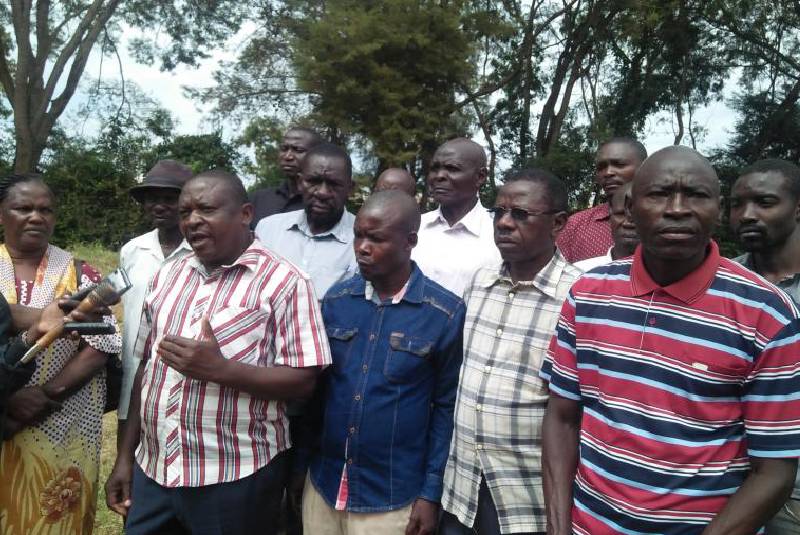
Sugarcane farmers from Kwale County during last week’s protest over the closure of Kwale International Sugar Company Limited. [Gideon Maundu, Standard]
A month after it was formed on orders of President Uhuru Kenyatta to steer the revival of the dying sector, the 20-member committee co-chaired by Agriculture Cabinet Secretary Mwangi Kiunjuri and Kakamega Governor Wycliffe Oparanya, is yet to table any findings. Its core mandate was to craft policy, propose reforms, unearth past, present and future challenges of the industry and table recommendations; relook the funding mechanism and cane pricing formula and propose new importation laws.